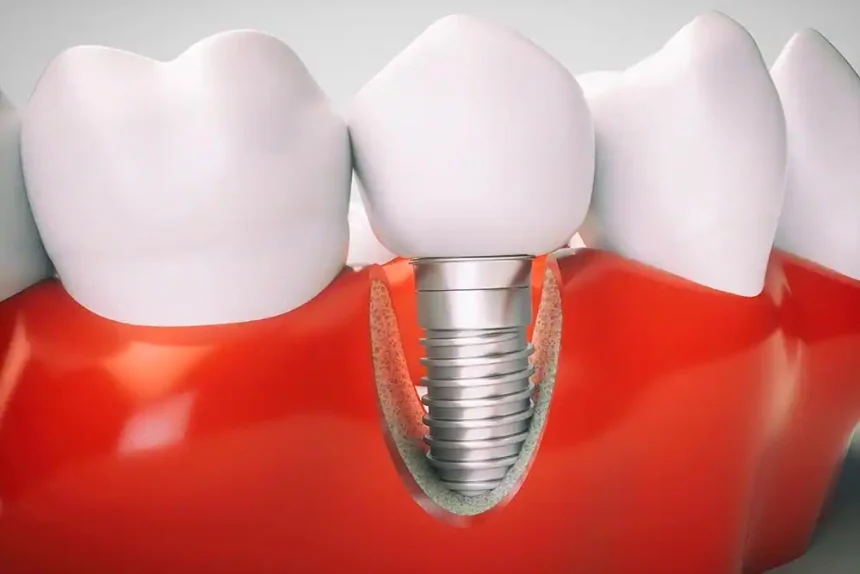Dental implants have emerged as a cornerstone in modern cosmetic dentistry, offering a blend of functionality and aesthetic appeal. They stand out as a preferred choice for individuals seeking a long-term solution for missing teeth. Unlike traditional dentures or bridges, implants provide a more natural feel and appearance, significantly enhancing one’s quality of life.
However, the effectiveness and longevity of these implants hinge on proper care and maintenance. This article aims to guide you through the best practices and essential tips for maintaining your implants. By adhering to these guidelines, you can ensure that your implants remain in excellent condition, contributing to both your oral health and overall confidence.
For those considering orthodontic solutions, finding an experienced Invisalign dentist in west point va becomes crucial. With the rising popularity of invisible aligners, the expertise of a skilled practitioner ensures effective treatment and a seamless journey to a beautifully aligned smile.
Understanding Dental Implants
Implants are essentially artificial tooth roots, typically made from titanium, that are surgically placed into the jawbone. They serve as a sturdy foundation for attaching artificial teeth, such as crown, bridges, or dentures. What sets implants apart is their ability to integrate with the bone, a process known as osseointegration.
This integration not only provides exceptional stability but also helps preserve the jawbone, preventing the bone loss that often accompanies tooth loss. Dental implants are highly valued in cosmetic dentistry for their ability to replicate the look, feel, and function of natural teeth, making them an excellent solution for those looking to restore their smile effectively.
Daily Cleaning and Care
Proper daily cleaning is crucial for the longevity of implants. It’s recommended to brush at least twice a day using a soft-bristle toothbrush and low-abrasive toothpaste. This helps prevent scratching the surface of the implants. When brushing, focus on cleaning under and around the implant crown to remove plaque and food debris. Flossing is equally important; use unwaxed tape or floss designed for implants to clean around the implant and under the gum line effectively.
Additionally, an interdental brush can be used to clean hard-to-reach areas around the implant. It’s also beneficial to rinse with an antimicrobial mouthwash to reduce bacteria and plaque buildup. Remember, the goal is to keep the area around the implant as clean as possible to prevent infection and ensure the implant’s longevity.
Regular Dental Check-Ups
Regular dental check-ups are essential for maintaining dental implants. It’s generally advised to visit your dentist every six months, though individual needs may vary. During these visits, your dentist will conduct a thorough examination of your implants to ensure they are functioning correctly and the surrounding gum tissue is healthy.
Professional cleaning during these visits helps remove any plaque and tartar buildup that regular brushing and flossing might miss. These check-ups also provide an opportunity for your dentist to identify and address any potential issues early, such as signs of infection or implant loosening, ensuring the long-term success of your implants.
Avoiding Harmful Habits
To protect your dental implants, it’s important to avoid certain harmful habits. Smoking is one of the biggest threats to implant health, as it impairs healing and increases the risk of implant failure. Chewing on hard items like ice, pens, or fingernails can also damage implants. Avoid using your teeth as tools to open packages or bottles, as this can lead to implant fractures.
It’s also advisable to steer clear of sticky or overly hard foods that can put excessive pressure on implants. Practising good oral habits, such as wearing a mouthguard during sports and avoiding teeth grinding, can further protect your implants. By steering clear of these harmful habits, you can significantly extend the life and functionality of your implants.
Dealing with Discomfort or Issues
After dental implant surgery, experiencing some discomfort is normal. This can include swelling, bruising, and minor bleeding. To manage this, follow your dentist’s post-operative care instructions, which may include taking prescribed pain medication and applying ice packs. It’s crucial to monitor your recovery; if you notice prolonged pain, swelling, or signs of infection, contact your dentist immediately. Timely intervention can prevent complications and ensure the health of your implant.
Long-Term Considerations
For the long-term success of implants, ongoing oral hygiene and regular dental check-ups are essential. Maintaining good oral hygiene prevents gum disease, which can compromise implant stability. Avoiding hard and sticky foods protects implants from damage. Additionally, if you have habits like teeth grinding, discuss with your dentist about wearing a night guard to protect your implants. Regular dental visits allow for professional cleaning and early detection of any issues, ensuring your implants remain in optimal condition.
Conclusion
Dental implants are a significant investment in your oral health, offering both functional and aesthetic benefits. Proper care, both immediately after surgery and in the long term, is crucial for their success. By adhering to good oral hygiene practices, attending regular dental check-ups, and being mindful of potential issues, you can ensure the longevity and health of your implants. Remember, taking care of your implants is taking care of your overall well-being.


